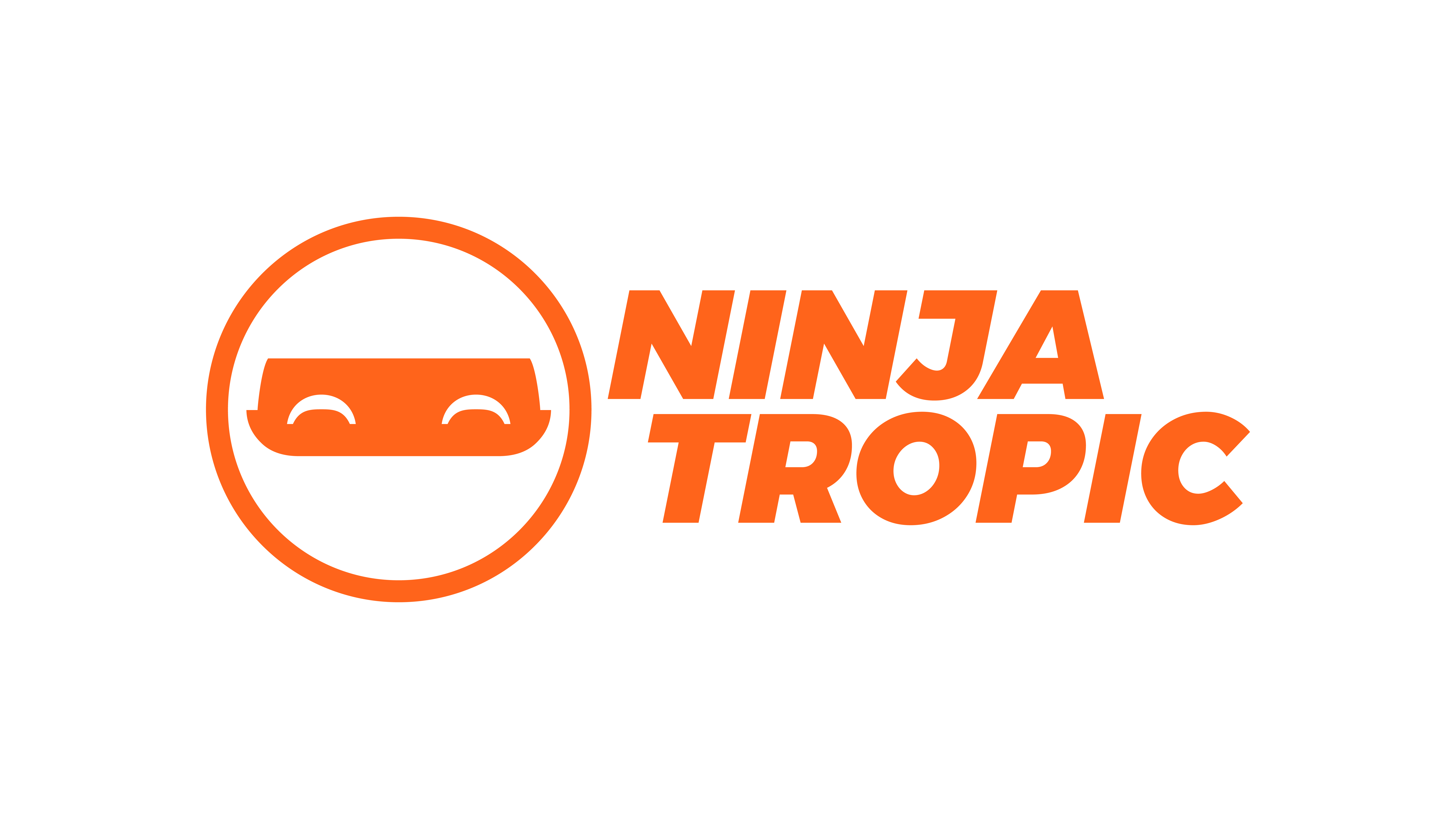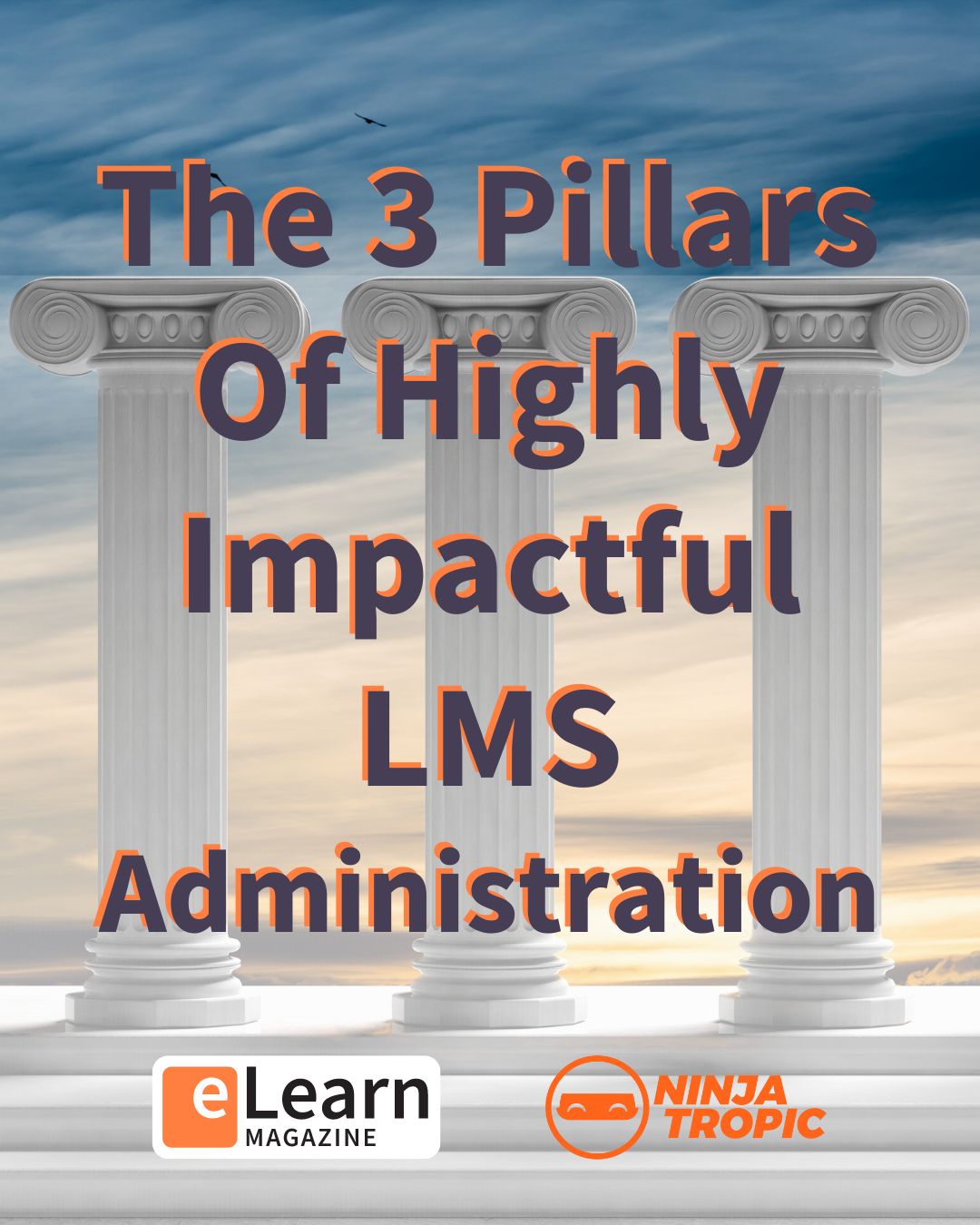This article is written in collaboration with Ninja Tropic and eLearn Magazine.
In the world of organizational learning, the role of a Learning Management System administrator —LMS Admin, or affectionately “admin”— is often underestimated and misunderstood.
In reality, there is an immense strategic potential inherent in this position. LMS admins perform duties that range from assisting teachers in day-to-day tasks, all the way to defining eLearning outcomes, IT policies and user data practices.
In this article, we aim to shed light into the ways an admin is seen and how it should be instead, in order to bring a transformative understanding of the role and the LMS.
Because, when properly understood, admins can play a transformative role for organizations.
So let’s get started!
What everyone can easily get wrong about LMS administration
It is easy to make the mistake of seeing LMS Administration with a narrow lens, thinking of admins as customer service reps. This perception can lead to dubious or detrimental practices within a learning organization, including but not limited to
- Involve admins too late in the the implementation
- Assign the role to staff with other primary responsibilities
- Assign it to someone without relevant experience
- Provide little to no training to the people in charge
- Overlook key data and configuration features in the LMS
- View the LMS as a “once-and-done” project
Let’s consider them alongside the life cycle of LMS implementation. Just picture it: An eager learning organization rushes to have an LMS in place, which the vendor summarily delivers. They fail to realize early on —with some blame going to the vendor— that the LMS needs people to be on top of it, so the duty is assigned to a team member who is likely already covering for a chronically unfilled position. As eLearning becomes a mandate, teachers scramble to put their course contents up, flooding the admin’s email with questions or ZIP files for her to upload. Most LMS features remain unused, low student engagement becomes the norm and both the data and the interface becomes an inscrutable mess. After a year or two, the leaders fail to see any return from the investment on organizational learning, and drastic measures under evaluation include layoffs, switching LMS vendors and even shutting down eLearning initiatives for the time being.
Another look at the strategic potential of LMS administration
As ludicrous as you might consider the tale above, it reflects a number of realities and missteps we witness more commonly than we’d like.
Avoiding such a sad and wasteful tale is, however, not only possible, but effortless. All it takes is a bit of proper planning, defining goals and expectations early on; and above all, recognizing the role of the admin as a cornerstone for strategic learning and organizational development.
A trained and dedicated admin can significantly influence the development of a learning culture within an organization. This role is instrumental in aligning learning initiatives with broader business goals and tailoring them to meet the evolving needs of the workforce and the organization.
At first glance, the expense associated with onboarding a talented admin could be seen as steep. But if the LMS is seen as a strategic priority —which you probably should, as your competitors have likely adopted this mindset—, the substantial value the admin can bring will more than offset this and any other investments associated with your LMS project.
High-impact LMS admin: The 3 pillars
Of course, considering a competent admin is not enough, even if elevating your organizational learning through the LMS is their main or only responsibility. Making the most of your LMS investment begins by establishing a language that bridges the understanding of what matters most for your learning organization, and what doesn’t; and the ways in which organizational learning goals will be achieved. (And the ways they won’t.)
We can boil down some of the extensive research into LMS effectiveness into 3 concepts, which in our experience should be part of the everyday vocabulary or users and leaders:
№ 1: Culture
Before diving into the technicalities of concurrency, settings or integrations, the top priority of a strategically aligned admin is to understand the current organizational learning culture, in order to strengthen its values through the users’ everyday LMS activity.
No two organizational learning cultures are the same. Values like equity and inclusion, community, innovation and risk-taking, cost-efficiency or personalization are broadly appealing, but they can often enter in conflict with one another. The admin can help set and spread priorities, and ensure the LMS is set up accordingly. Awareness of the culture surrounding the LMS turns it into a dynamic platform that supports and enhances the learning journey of every user, contributing to the overall growth and adaptability of the organization.
№ 2: Data
One of the most significant roles of a strategic LMS Administrator is collecting and analyzing data from the LMS, and making sure its outcomes are available to the community at large. When properly managed, from collection to decision-making, LMS data can offer critical insights into the effectiveness of learning programs, levels and opportunities for user engagement, and areas of improvement and optimization in general.
According to LX designer Brian Zemba, data has the potential to allow you to “walk in the learner’s shoes” of potentially every single one of your users. The ability to use data to improve learning experiences is probably the key trait that will convert the LMS from a mere repository into part of the business intelligence of a learning organization. And arriving at this stage takes an admin with the experience and creativity to make the data available and actionable, not just to the leaders and top execs. Sound data practice can empower organizational culture.
№ 3 Transformation
Shifting the LMS from an administrative or operational expense to turn it into a strategic asset requires a conscious collective effort, of which the admin is the main custodian.
Considering its multiplying effect, advancing the professional development of admins —and to be sure, of any other collaborator as well— should be essential mandate for innovative learning organizations. LMS are living entities, and in a highly competitive marketplace, a well-rounded, continuously upskilled admin will ensure a steady pace of new initiatives that seek to consolidate a culture, foster new thinking, and help achieve ever-growing, ambitious goals.
LMS administration services: An alternative approach
To wrap things up, we want to emphasize how valuable it is to nurture internal talent, particularly when it comes to an admin who can internally drive an eLearning strategy and align an LMS in the right direction. Developing an in-house strategic LMS Administrator ensures a deeper understanding of the organization’s unique culture, goals, and learning needs, leading to more tailored and effective learning solutions.
But it’s worth pointing out that there are LMS administrator services available “for hire,” akin to technical or strategic consulting. For new or small organizations, or while the perfect internal admin becomes ready to take on the grand mission, these services could represent a “quick win” in the process of ensuring an effective LMS implementation. Look up online or consult with your vendor for services related to LMS administration, project management, consulting or professional services.
In any case, the role of an LMS Administrator, when leveraged to its full potential, can be instrumental in the development of a transformative, knowledge-driven culture. It’s time for learning organizations to reevaluate and elevate the position of the LMS admin.

Written by Erick Prospero, CEO & Diana Amaral, Senior LMS Manager at Ninja Tropic. Erick is a renowned thought leader in the microlearning and corporate training space. Diana is an experienced LMS admin and project manager, knowledgeable in delivering highly engaging training in over a dozen different LMS. Learn more about what Ninja Tropic can do for you









